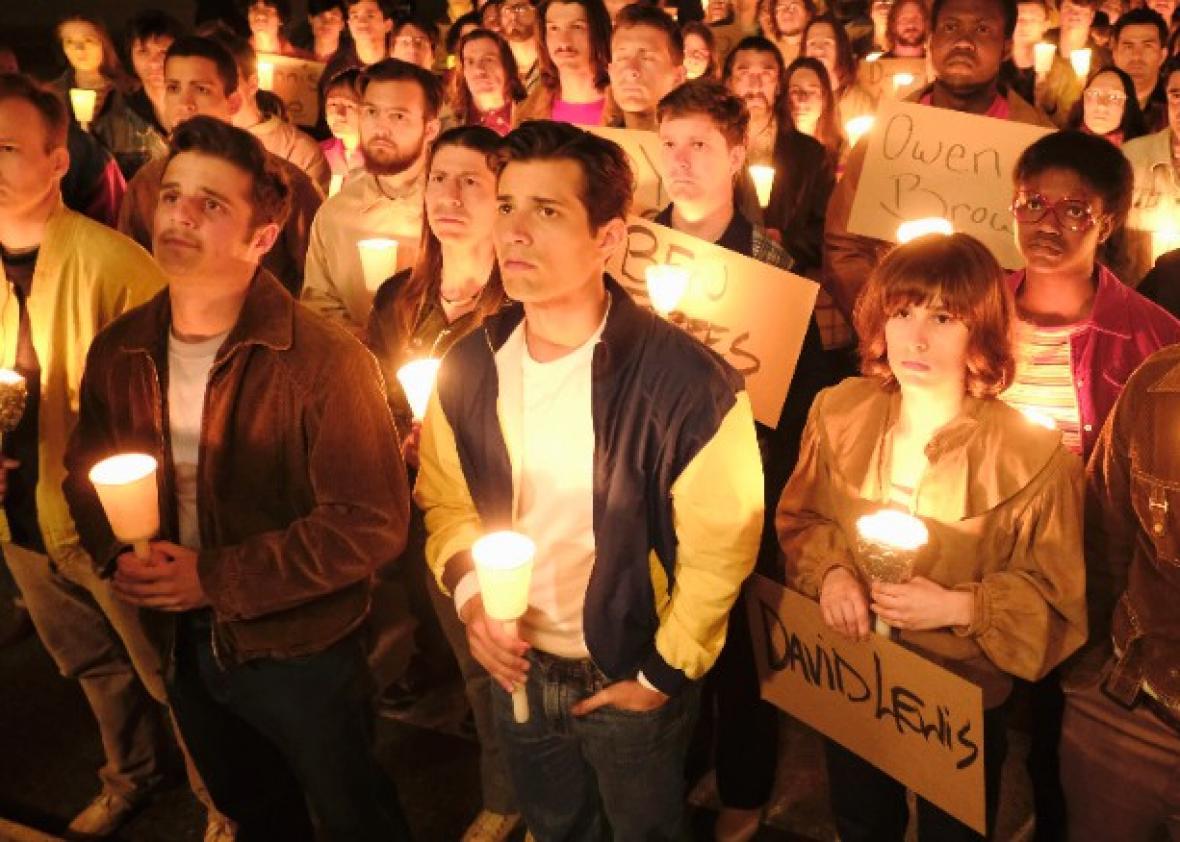Did you watch Dustin Lance Black’s much-promoted, little-loved LGBTQ civil rights miniseries When We Rise on ABC last week? No? Then you are part of the problem.
So claims a bizarre lament of the series’ ratings from the Advocate’s Daniel Reynolds. In several posts last week, including one titled “When We Fall in Ratings, We Fail Our Movement,” Reynolds spun the anemic viewership for the eight-hour series into a failure on the part of queer audiences everywhere. (The series ended quietly on Friday night with a slight audience bump, but its ratings in general were soft for such a high-profile network event.)
Why didn’t the show perform? Could it be that it felt plucked from another era? The wildly uneven writing? Those wigs? No, don’t be silly. Absentee queer viewers are to blame. “Let’s be real,” Reynolds writes. “For Hollywood, LGBT rights are not a charity case. This is a business. If you want to see a transgender lawyer, a queer activist of color, or a gay prince charming on TV, then you’d better view the show.” Pointing to the swift death of CBS’ Doubt (which co-starred Laverne Cox) last month and the recent cancellation of USA’s Eyewitness (featuring gay teenagers), Reynolds suggests queer audiences are failing to show up for their stories just as their rights are newly imperiled under the Trump administration. Reynolds’ false narrative apparently found a receptive audience in Breitbart, which cited the same three shows in a post over the weekend to note coyly that When We Rise is “not the first LGBT-orientated series to receive poor ratings.”
To be clear: LGBTQ stories are not failing on television, and they are diverse and plentiful. If anyone deserves blame for the inability of When We Rise to find a bigger audience, it’s Dustin Lance Black and ABC, who together produced a creatively shaky series that failed to speak either to queer viewers at large or straight people in the heartland. That’s certainly a missed opportunity, but it’s a grave mistake to shift the blame from the creators to the gay and trans viewers who have been routinely underserved for years. We have no moral imperative to watch bad shows—or even good shows!—because a network deigned to represent people like us in 2017. I watched one episode of When We Rise, and while I was touched by the sheer amount of same-sex snogging it brought to network TV, I struggled to understand the value of its broad, slapdash approach to history. Its tepid reception suggests it didn’t strike many others as particularly urgent, either. That’s hardly a referendum on gay and trans television as a whole or on the hunger of those audiences to see their stories told, and told well.
Of course I wish When We Rise and Doubt and Eyewitness had been more essential television, but the only thing their underperformance means is that their creative teams made shows that didn’t connect with audiences, queer or otherwise. That’s it. Rest assured that network executives will spin their own insidious narratives about why these series failed—we don’t need to do it for them.
